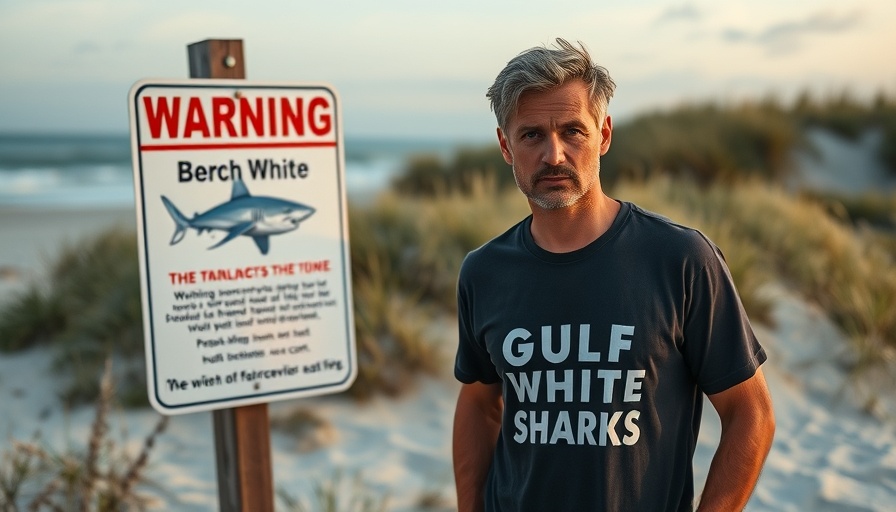
Unveiling the Apex Predator: The Great Whites of the Gulf
In a sensational revelation for marine life enthusiasts, wildlife journalist Chester Moore is shining a spotlight on great white sharks in the Gulf of Mexico with the premiere of a groundbreaking documentary titled Gulf Great White Sharks: Return of an Icon. After nearly two decades of research sparked by an unforgettable encounter with these majestic creatures, this film challenges long-held beliefs about the presence of sharks in southern waters.
Peering Beneath the Surface: A Historic Encounter
It all began in 2005 when charter Captain Ryan Warhola spotted a massive figure circling beneath a Gulf oil rig. Instead of being dismissed as mere folklore, this encounter catalyzed years of investigation. These powerful predators have long been perceived as absent from the Gulf, but Moore’s documentary utilizes both modern technology and expert insights to debunk this myth.
Expert Insights and Modern Technologies: Drones and Data
The documentary features breathtaking drone footage and commentary from esteemed marine biologists, highlighting the pivotal evidence that supports Moore’s findings. For example, the film chronicling “LeeBeth,” a satellite-tagged female great white that swam over 1,000 miles from South Carolina to South Padre Island, illustrates the resilience and adaptability of these sharks. LeeBeth's journey revolutionizes previous understandings of the species' migration patterns, opening new avenues for research and conservation.
A New Era for Shark Populations
Moore discusses the significant recovery of great white shark populations since protective measures were implemented in the Atlantic in 1997, leading to a hopeful resurgence in the Gulf. This success is perhaps more profound than many realized, as great whites reclaim traditional territories long believed to be devoid of their presence.
Shifting Perspectives: The Importance of Awareness
The film’s public premiere, held at the Museum of the Gulf Coast, aligned with the 50th anniversary of Jaws. This coincidence is particularly poignant, as the infamous film has played a role in fostering fear and misconception about sharks. As Moore points out, success stories like those shared in the documentary serve as a counter-narrative, inspiring a more balanced view that acknowledges sharks’ role as vital players in marine ecosystems.
Engagement and Future Research
Moore hopes that this documentary will not only educate viewers but also inspire further research and conservation efforts targeting these apex predators. Now available for free on platforms like YouTube and [GulfGreatWhites.com](https://www.gulfgreatwhites.com/documentary/), it invites everyone to reevaluate their understanding and appreciation of these magnificent creatures.
For those interested in marine conservation or simply fans of aquatic life, this documentary offers an invaluable perspective. Moore’s dedication to raising awareness serves as a reminder of our shared responsibility to protect the environments that are home to such incredible wildlife.
 Add Row
Add Row  Add
Add 




Write A Comment